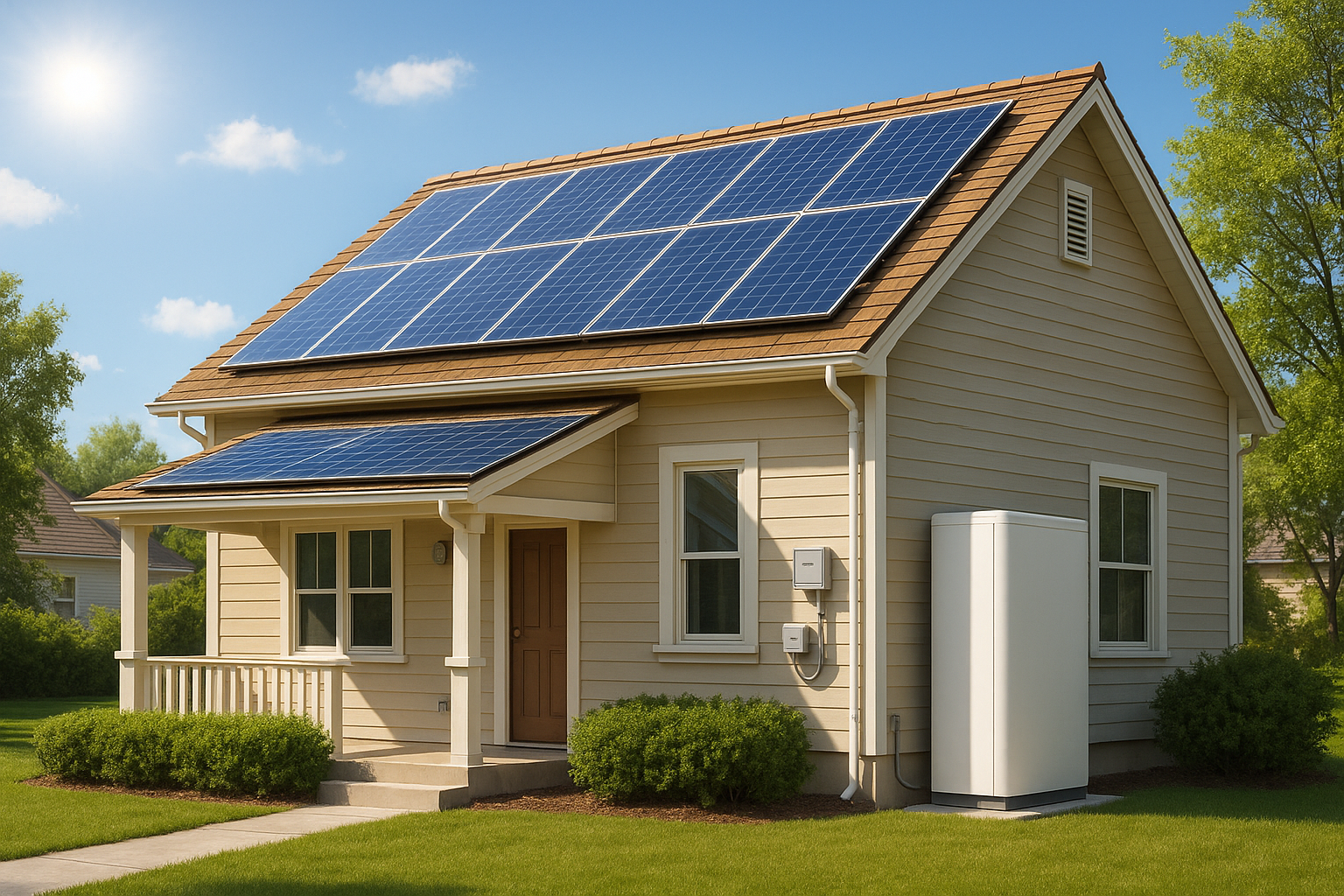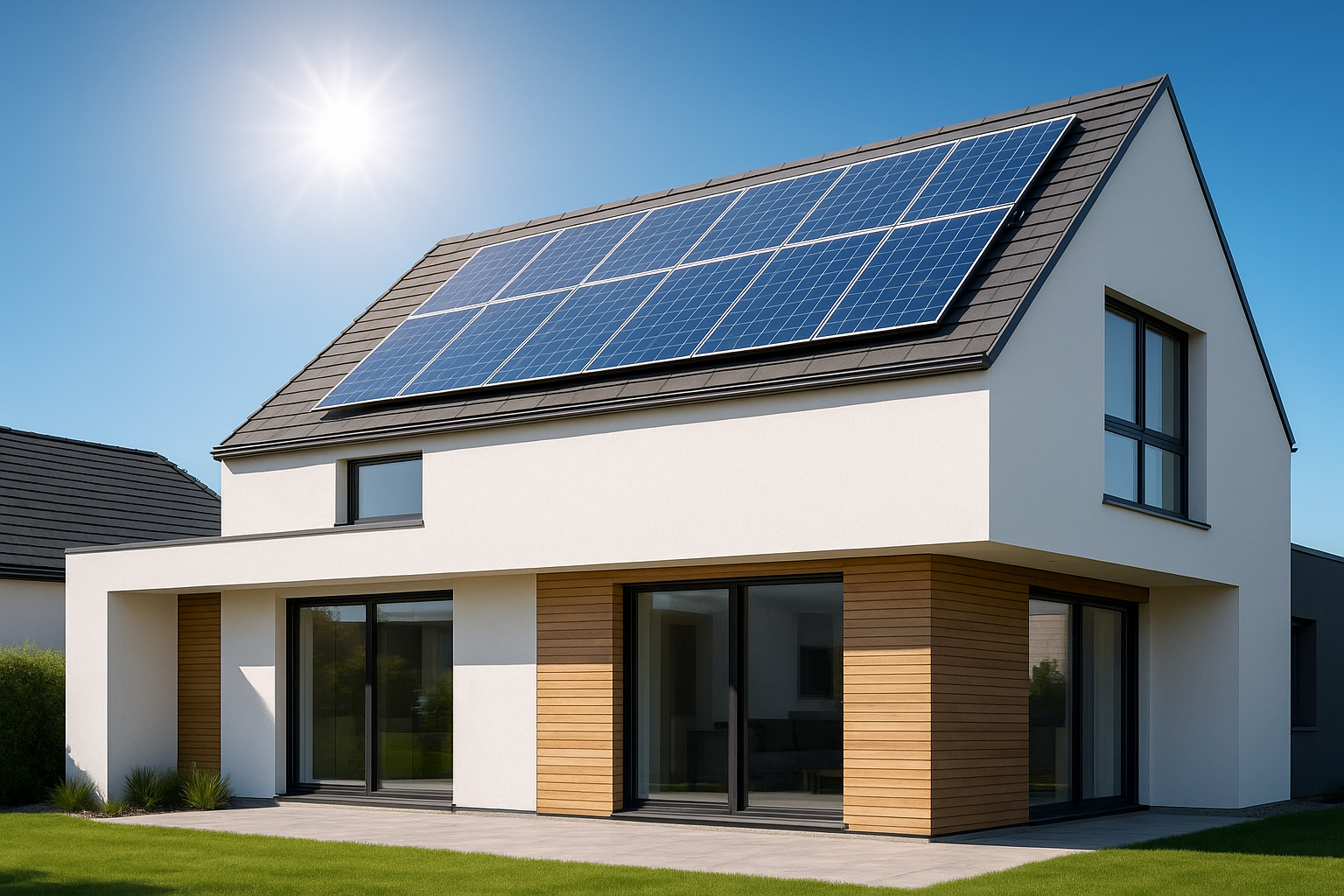Adopting solar energy for your home offers many benefits, from reducing electricity bills to decreasing your environmental footprint. As more homeowners choose solar, a key decision emerges: should you own your solar system or opt for a lease or Power Purchase Agreement (PPA)? This choice impacts your immediate finances and significantly influences your home's market value. We will examine how each option affects your property's worth, helping you make a choice that aligns with your financial and energy goals.
Understanding Solar Ownership
Solar ownership means you directly purchase your solar panel system, either outright or through a solar loan. When you own the system, it becomes a permanent fixture of your property, much like a new roof or a renovated kitchen. This direct investment offers you complete control and access to all the financial incentives available.
Financial Benefits of Ownership
Owning your solar system unlocks several financial advantages. You become eligible for federal tax credits, state incentives, and potentially Solar Renewable Energy Certificates (SRECs), which can significantly offset the initial cost. For instance, the federal solar tax credit allows you to claim a percentage of your system's cost as a tax credit, reducing your overall investment. Over time, generating your own electricity dramatically lowers or eliminates your monthly utility bills, leading to substantial savings. These savings accumulate, increasing your overall return on investment.
Long-Term Value and Control
A homeowner-owned solar system is a valuable asset. It adds tangible value to your property, a factor often considered during home appraisals. You also have full control over the system's maintenance and performance. This means you can choose when to upgrade components or integrate advanced solutions. For example, integrating high-performance, safe, and reliable lithium iron phosphate (LiFePO4) batteries with your solar setup maximizes energy independence and system efficiency. These batteries are known for their longevity and stability, enhancing the long-term value proposition of your owned system.

Understanding Solar Leasing and Power Purchase Agreements (PPAs)
Solar leasing and Power Purchase Agreements (PPAs) offer a way to go solar without a large upfront investment. In these arrangements, a third-party company owns, installs, and maintains the solar panels on your roof. You then pay them a fixed monthly fee for the use of the panels (lease) or for the electricity they produce (PPA).
Financial Implications of Leasing
The primary appeal of a solar lease or PPA is the zero or low upfront cost. You begin saving on your electricity bills immediately, as your monthly lease payment or PPA rate is typically lower than your previous utility bill. However, you do not own the system, which means you are not eligible for federal tax credits or other ownership-specific incentives. Your savings are limited to the difference between your lease payment/PPA rate and your avoided utility bill.
Impact on Home Sale
While leases offer immediate savings, they can introduce complexities when selling your home. The lease agreement is a contract tied to the property, and the new homeowner must typically assume the remaining terms of the lease. This can deter potential buyers who prefer direct ownership or do not wish to inherit a long-term contract. The transfer process can involve credit checks for the buyer and may delay the sale. In some cases, if a buyer is unwilling to assume the lease, the seller might be required to buy out the lease, adding an unexpected cost.
The Direct Impact on Home Value
The presence of solar panels generally increases a home's value, but the extent of that increase varies significantly depending on whether the system is owned or leased. Research consistently shows that owned solar systems contribute more positively to property value.
Research and Data on Solar's Value Add
Studies have indicated that homes with owned solar systems sell for a premium compared to homes without solar. For example, according to Energy.gov's EERE Success Story, solar energy's growing popularity is changing how homes are bought and sold, consistently adding value to properties. Real estate professionals are embracing new data standards to accurately value solar homes, recognizing solar's premium-boosting value. This suggests that an owned solar system is viewed as a significant upgrade, similar to other major home improvements.
Ownership's Advantage in Home Appraisal
When a home appraisal occurs, an owned solar system is considered an asset. Appraisers can factor in the system's size, age, and energy production capabilities, directly influencing the property's appraised value. This tangible asset contributes to your home equity and provides a clear financial benefit upon sale. The system is yours, and its value is entirely integrated into your property's overall worth.
Lease's Complications in Home Appraisal
Conversely, a leased solar system is not an asset of the home. It belongs to the third-party company. Appraisers may view the lease agreement as a liability or a complication rather than an enhancement to the property's value. The ongoing monthly payments and the need for the new buyer to assume the contract can negatively influence the appraisal. While the home benefits from lower electricity bills, the system itself does not directly contribute to the home's equity.
Here is a comparison of how ownership and leasing typically impact your home's value:
| Feature | Solar Ownership | Solar Lease/PPA |
|---|---|---|
| Upfront Cost | Higher (can be financed) | Lower or Zero |
| Monthly Payments | Loan payments (if financed), then none | Fixed monthly payment or per kWh rate |
| Eligibility for Incentives | Yes (tax credits, SRECs) | No |
| Impact on Home Value | Positive asset, increases equity | Potential liability, complicates sale |
| Maintenance Responsibility | Owner's (or covered by warranty) | Provider's |
| Selling Complexity | Generally straightforward | Requires lease transfer or buyout |
| Energy Independence | High | Limited (dependent on provider) |
Beyond Financials: Energy Independence and System Performance
While financial returns are crucial, the choice between ownership and leasing also affects your long-term energy strategy and control over your home's power supply. An owned system offers unparalleled flexibility and the ability to truly achieve energy independence.
Control and Customization with Ownership
When you own your solar system, you have the freedom to customize it to your specific energy needs. You can choose the size of your array, the type of panels, and crucial components like inverters and battery storage. For instance, integrating a robust home energy storage system (ESS) allows you to store excess solar energy generated during the day for use at night or during power outages. This provides a reliable backup power supply and maximizes your solar self-consumption. For homes in remote areas or those seeking ultimate self-sufficiency, off-grid solar solutions offer complete energy independence, freeing you from reliance on the utility grid.
The Role of Reliable Technology
The quality and reliability of your solar components directly impact your system's performance and lifespan. Investing in high-performance solar inverters, which efficiently convert DC electricity from panels to AC power for your home, is critical. Combining these with long-lasting LiFePO4 batteries ensures your system delivers consistent power for years. These advanced technologies enhance the overall value and practicality of an owned solar system, providing a robust and scalable energy solution for your home.
Future-Proofing Your Home's Energy
Owning your solar system positions your home for future energy demands. As energy prices fluctuate and grid reliability becomes a concern, having a self-sufficient energy source provides peace of mind. The ability to integrate advanced ESS technologies means your home can adapt to changing energy landscapes, making it more resilient and attractive in the long run. This forward-thinking approach to energy management adds a layer of unseen value to your property, securing your energy future.
Making Your Choice
The decision between solar ownership and leasing involves weighing immediate financial savings against long-term property value and energy independence. While solar leases offer a low-barrier entry point to solar energy, owning your system generally provides a more substantial and lasting boost to your home's value. It transforms your property into a more attractive asset, offering greater control over your energy future and potentially higher returns upon sale. Consider your financial situation, your long-term plans for your home, and your desire for energy autonomy when making this important decision.





Leave a comment
All comments are moderated before being published.
This site is protected by hCaptcha and the hCaptcha Privacy Policy and Terms of Service apply.